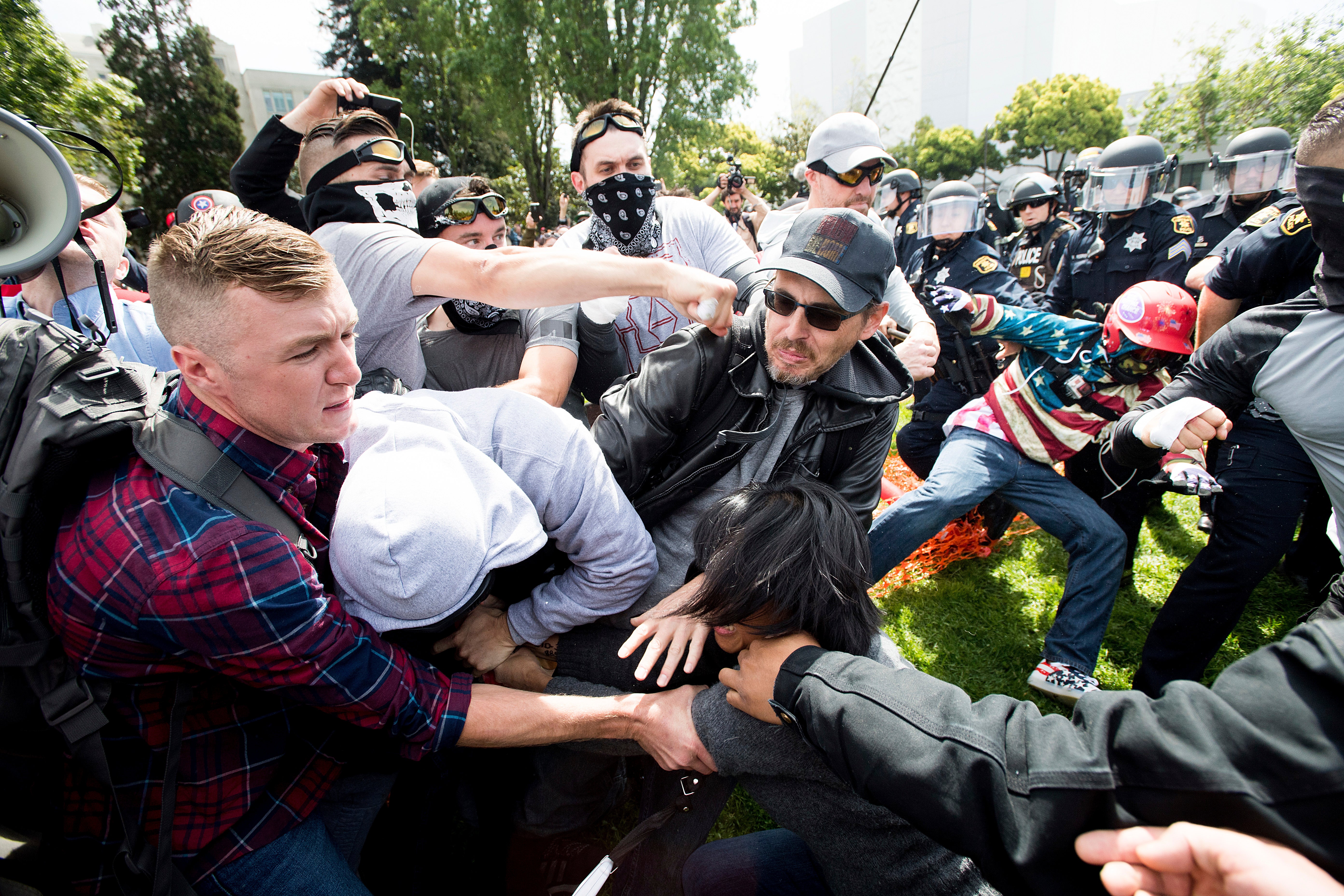Charges against alleged white supremacists are tossed by a California judge for the second time
For the second time in five years, federal charges against alleged members of a violent white supremacist group accused of inciting violence at California political rallies were dismissed by a federal judge who found they were selectively prosecuted

Your support helps us to tell the story
From reproductive rights to climate change to Big Tech, The Independent is on the ground when the story is developing. Whether it's investigating the financials of Elon Musk's pro-Trump PAC or producing our latest documentary, 'The A Word', which shines a light on the American women fighting for reproductive rights, we know how important it is to parse out the facts from the messaging.
At such a critical moment in US history, we need reporters on the ground. Your donation allows us to keep sending journalists to speak to both sides of the story.
The Independent is trusted by Americans across the entire political spectrum. And unlike many other quality news outlets, we choose not to lock Americans out of our reporting and analysis with paywalls. We believe quality journalism should be available to everyone, paid for by those who can afford it.
Your support makes all the difference.For the second time in five years, federal charges against alleged members of a violent white supremacist group accused of inciting violence at California political rallies were dismissed by a federal judge who found they were selectively prosecuted.
Federal prosecutors said members of the Rise Above Movement conspired to riot by using the internet to coordinate traveling to political rallies and attacking demonstrators at gatherings in Huntington Beach, Berkeley and San Bernardino in 2018. The group also posted videos to celebrate violence and recruit members.
U.S. District Judge Cormac J. Carney first tossed the charges against Robert Rundo and Robert Boman in June 2019. The two were charged with conspiracy to violate the Anti-Riot Act and rioting.
On Wednesday, Carney again granted the defendants’ motion to dismiss, agreeing that Rundo and Boman were being selectively prosecuted while “far-left extremist groups” were not.
In his decision, Carney wrote “there seems to be little doubt” that Rundo and Boman, or members of their group, engaged in criminal violence. “But they cannot be selected for prosecution because of their repugnant speech and beliefs over those who committed the same violence with the goal of disrupting political events,” Carney wrote.
Boman was already free on bond, while Rundo was still being detained. Prosecutors requested that Rundo remain in custody pending appeal, but Carney denied it and set him free. Soon after the ruling, prosecutors filed a notice that they would appeal, the Los Angeles Times reported.
Outside the courtroom, Boman became emotional and said he was ashamed of his “old antics,” the Times said.
In his 2019 ruling, Carney said the Anti-Riot Act of 1968 was unconstitutional in part because it criminalized advocating violence when no riot or crime was imminent.